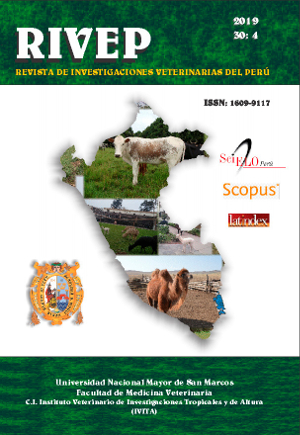Comparative study of the improvements in cognitive and emotional skills between an outcome-based curriculum and a competency-based curriculum in students of the Faculty of Veterinary Medicine and Zootechnics, UPCH, Peru
DOI:
https://doi.org/10.15381/rivep.v30i4.17169Keywords:
cognitive skills, emotional skills, veterinary curriculum, competency-based approachAbstract
A comparative study of the improvements in cognitive and emotional skills is presented between an outcome-based curriculum, with innovation of active methodologies (2012-II), and a competency-based curriculum (2018-I), aiming to develop generic and specific competences by improving these skills. The evaluation of cognitive and emotional skills was done by adapting the Reuven’s Bar-On Emotional Quotient Inventory Survey (EQ-i). The survey was conducted twice in each semester. The results were compared to determine if there were improvements between the first and second surveys in each semester and between both curricula. Also, the results of academic indicators were compared. The number of students enrolled was 30 (2012-II) and 27 (2018-I) and the respondent rate exceeded 70%. The result referred to the improvement of cognitive skills, problem solving, showed an almost double improvement between the first and second surveys in both curricular proposals. In emotional skills, stress management, a negative impact was observed in the 2012-II semester, while in the 2018-I semester there was an improvement, possibly due to the greater support to the students in the activities carried out in the development, correction and feedback received in the competency-based curriculum. In academic achievements there was an improvement in the general grade average between the semesters and a significant decrease in the disapproval between the two semesters. It can be concluded that the implementation of a competence-based curriculum, with active teaching methodologies, allowed the improvement in cognitive and emotional skills, improvement of academic achievements and a significant decrease in the failure of the course.
Downloads
Downloads
Published
Issue
Section
License
Copyright (c) 2020 Ricardo Grandez R., Silvana Cáceres L., Claudia Miguel de Priego G., Ricardo Rojas M., Elizabeth Hinostroza M.

This work is licensed under a Creative Commons Attribution-NonCommercial-ShareAlike 4.0 International License.
AUTHORS RETAIN THEIR RIGHTS:
a. Authors retain their trade mark rights and patent, and also on any process or procedure described in the article.
b. Authors retain their right to share, copy, distribute, perform and publicly communicate their article (eg, to place their article in an institutional repository or publish it in a book), with an acknowledgment of its initial publication in the Revista de Investigaciones Veterinarias del Perú (RIVEP).
c. Authors retain theirs right to make a subsequent publication of their work, to use the article or any part thereof (eg a compilation of his papers, lecture notes, thesis, or a book), always indicating the source of publication (the originator of the work, journal, volume, number and date).










